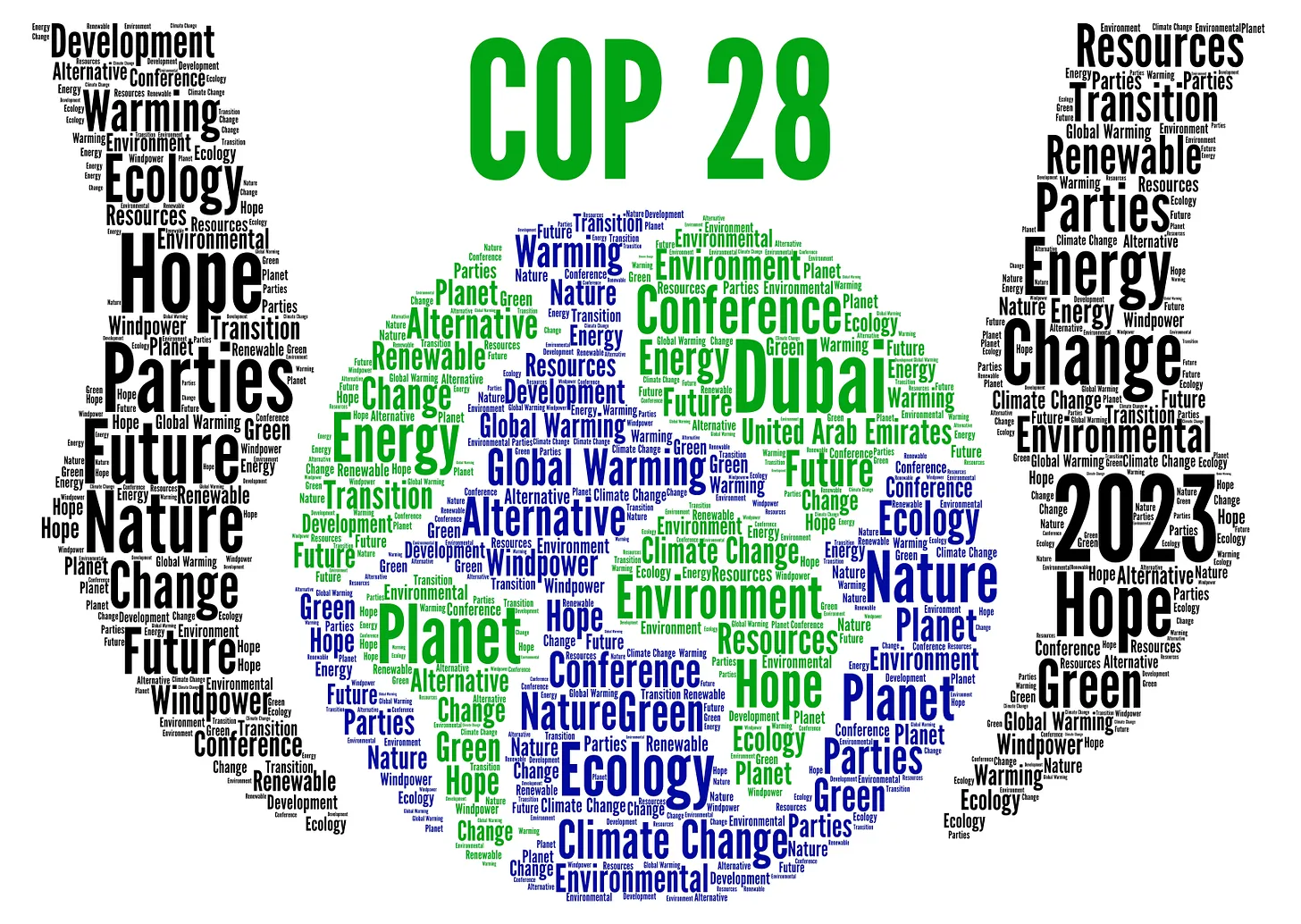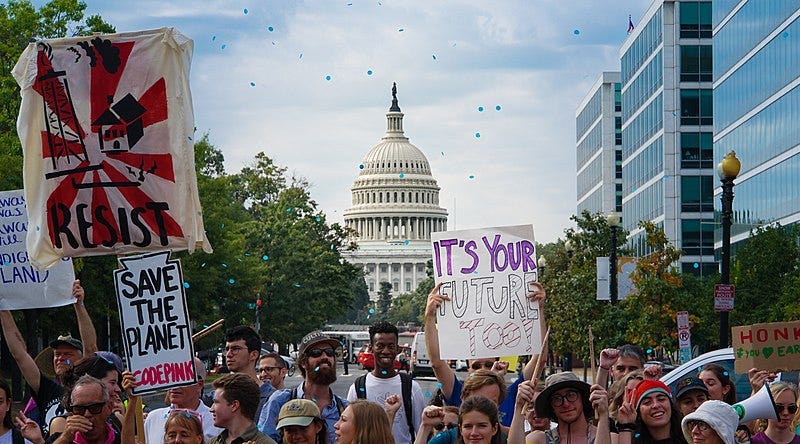As Conference of the Parties (COP) 28 Plays Out, Can Robert F. Kennedy Jr. Help Solve The Climate Crisis?

|
Getting your Trinity Audio player ready...
|
By Gary Wockner, Special to The Kennedy Beacon
In the lead up to Conference of the Parties (COP) 28, which started today in Dubai, the last few weeks have seen a flurry of bad climate news, perhaps the worst being that the “world briefly smashes through 2 degree warming for the first time,” as reported in CNN and many international media.
At the same time, the International Energy Agency reports that global demand for coal is at record levels in 2023, as well as global production of oil and natural gas. Further, both global atmospheric CO2 and methane concentrations are at historically high levels.
Let me be perfectly clear and put a sharp point on it: The so-called “transition” to clean energy is not happening. If there’s one thing Conference of the Parties (COP) 28 should discuss, that’s it.
Amidst this failure to mitigate climate change and phase out fossil fuels, it’s time to look around for people and ideas that aren’t at the table, people who’ve been excluded, or people who have been so-far ignored.
Over the last few years, I’ve started focusing my environmental advocacy on two things: 1) climate mitigation that is nature-based instead of simply arguing for burning fewer fossil fuels, and 2) climate “adaptation,” which means how we reorient our society to adapt to global warming while creating more resiliency for Nature to recover and thrive in a warmer climate.
At the same time I made this shift, Robert F. Kennedy Jr. stepped into the race for president of the U.S. and I immediately became interested in his approach. As a 40-year environmental attorney and activist, Kennedy has been a key figure in the climate movement in the past, including at the high-profile 2014 New York City Climate March (with me, above) as well as locking himself to the White House fence during the Keystone Pipeline battle. Add to that the numerous lawsuits he led or championed against the fossil fuel industry, as well as a lifelong battle against a type of coal mining called “mountaintop removal,” and he deserves to be taken quite seriously as a voice that needs to be at the table.
Coincidentally, Kennedy’s focus seems to have shifted around the same time as mine and in a similar direction.
First, he wants to unify the country in a new fight to protect and restore America’s environment. Like Kennedy, I used to be mired in partisan politics in my environmental battles, but had begun thinking that finding new friends across the aisle, rather than hardening enemies, was a better path forward. I’ve watched the so-called “climate movement” get more and more partisan at the exact moment that it is failing faster.
Second, Kennedy supports transitioning away from fossil fuels, and he’s repeatedly talked about ending subsidies for fossil fuels which he claims glean around $7 trillion per year globally. I’ve long thought a financial lever – that is a stick, and not just a carrot – must be in the mix as a tool to shift away from dirty energy.
Third and finally, he is focused on what are commonly called “Nature-Based Solutions” to climate change. In his videos and recent blog post, he says:
“We can protect our health, our farmland, our waterways, our forests, and our wildlife in ways that help the climate too.
When we build soil, we safeguard our food supply and draw down carbon. When we restore forests and wetlands, we preserve wildlife habitat and mitigate floods and droughts. When we replace dirty fuels with clean sources of energy, we protect our health and reduce emissions.”
What has particularly intrigued me about Kennedy’s positions is that he’s taking a stand against the excesses of the rush for clean energy. He’s stated support for opponents of lithium mines in Nevada and support against massive carbon capture pipelines in North Dakota and Iowa. In fact, he has called some of these schemes, “another high-tech mirage that sacrifices landscapes, ecosystems, and people for a theoretically better future.”
Kennedy is taking a stand against what critics are calling “Carbon Tunnel Vision,” where advocates are willing to sacrifice nearly every other environmental and human health and quality-of-life value in exchange for decreasing carbon emissions. This controversy is playing out across America, especially in the West, where the environment is becoming a sacrifice zone to supposedly reduce carbon emissions.
And it’s here where a comparison between Kennedy’s approach and Biden’s approach is most relevant. Biden seems to be in the “all of the above” category of fighting climate change where he has directed investments into various Nature-Based Solutions, but is also pushing hard to subsidize more so-called “clean energy” through the Inflation Reduction Act that is negatively impacting other environmental and human health values. Further, the wind and solar that Biden is pushing isn’t necessarily replacing fossil fuels, but is just adding more energy production into the mix.
Further, and more disturbingly, Biden’s “all of the above” strategy is intensely subsidizing and investing in fossil fuel production. In fact, U.S. production of both oil and natural gas are at all-time highs in part because of Biden’s policies. Among others, Biden supported the massive “Willow Project” in Alaska which would “generate enough oil to release 9.2 million metric tons of planet-warming carbon pollution a year – equivalent to adding 2 million gas-powered cars to the roads,” according to CNN. The project is mired in court battles with mainstream groups like the Sierra Club and Earthjustice leading the litigation against it.

As Conference of the Parties (COP) 28 plays out, I’m seeing more and more news stories where advocates are pushing Nature-Based Solutions, arguing against Carbon Tunnel Vision, and saying that “We Can’t Address Climate Change Without Nature,” as in this recent Time Magazine story.
Kennedy seems to be positioning himself in this mix with a different kind of environmentalism – less polarized, while supporting clean energy, but with a heavy focus on getting ‘Back to Nature,’ which was the environmental movement that both he and I grew up in.
Gary Wockner, PhD, is a leading global river-protection advocate. His opinions above are solely his own and do not represent any organization or company he is affiliated with. Contact: Gary@GaryWockner.com
Read MoreThe Kennedy Beacon

